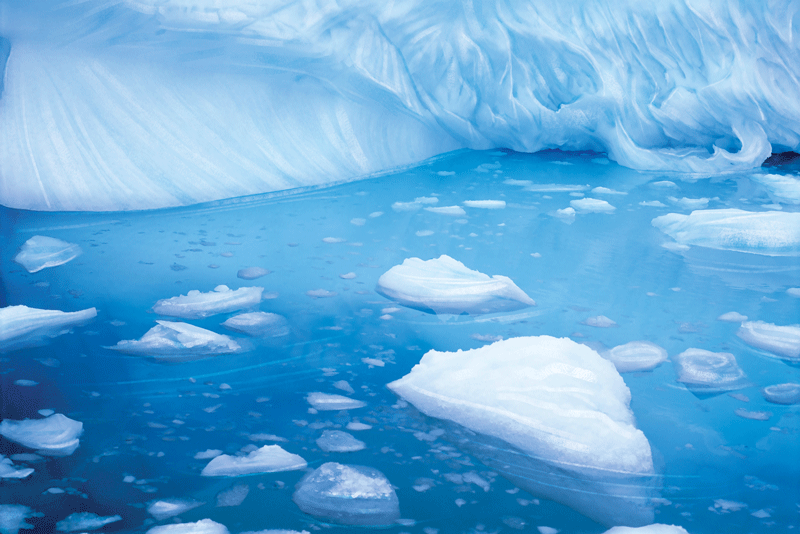Ice floats because it is less dense or has less mass per unit volume than water. Water molecule, due to its strong covalent bonds between the oxygen atom and hydrogen atoms in it, makes it denser than ice. Water reaches its maximum density at 4º C (40º F). As soon as water converts to ice, it loses some of its density. It is 9% less dense than liquid water. The heavier water molecules displace the lighter ice molecules, allowing it to float on water. Less dense substances float on top of more dense substances.
Why does ice float?


